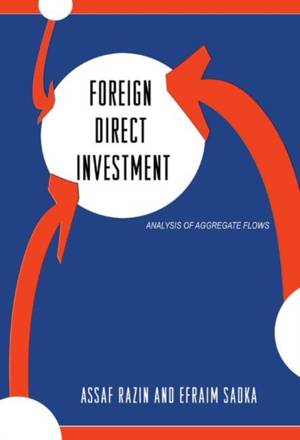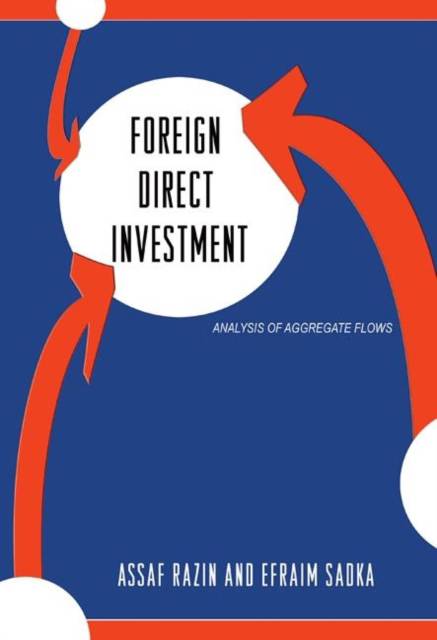
- Retrait gratuit dans votre magasin Club
- 7.000.000 titres dans notre catalogue
- Payer en toute sécurité
- Toujours un magasin près de chez vous
- Retrait gratuit dans votre magasin Club
- 7.000.000 titres dans notre catalogue
- Payer en toute sécurité
- Toujours un magasin près de chez vous
Foreign Direct Investment
Analysis of Aggregate Flows
Assaf Razin, Efraim Sadka
Livre relié | Anglais
154,45 €
+ 308 points
Format
Description
The 1990s saw global flows of foreign direct investment increase some sevenfold, spurring economists to explore FDI from a micro- or trade-based perspective. Foreign Direct Investment is one of the first books to analyze the macroeconomics of FDI, treating FDI as a unique form of international capital flow between specific pairs of countries.
By examining the determinants of the aggregate flows of FDI at the bilateral, source-host-country level, Assaf Razin and Efraim Sadka present the first systematic global analysis of the singular features of FDI flows. Drawing on a wealth of fresh data, they provide new theoretical models and empirical techniques that illuminate the vital country-pair characteristics that drive these flows. Uniquely, Foreign Direct Investment examines FDI between developed and developing countries, and not just between developed countries. Among many other insights, the book shows that tax competition vis-à-vis FDI need not lead to a "race to the bottom." Foreign Direct Investment is an essential resource for graduate students, academics, and policy professionals.Spécifications
Parties prenantes
- Auteur(s) :
- Editeur:
Contenu
- Nombre de pages :
- 160
- Langue:
- Anglais
Caractéristiques
- EAN:
- 9780691127064
- Date de parution :
- 21-10-07
- Format:
- Livre relié
- Format numérique:
- Ongenaaid / garenloos gebonden
- Dimensions :
- 239 mm x 158 mm
- Poids :
- 376 g







